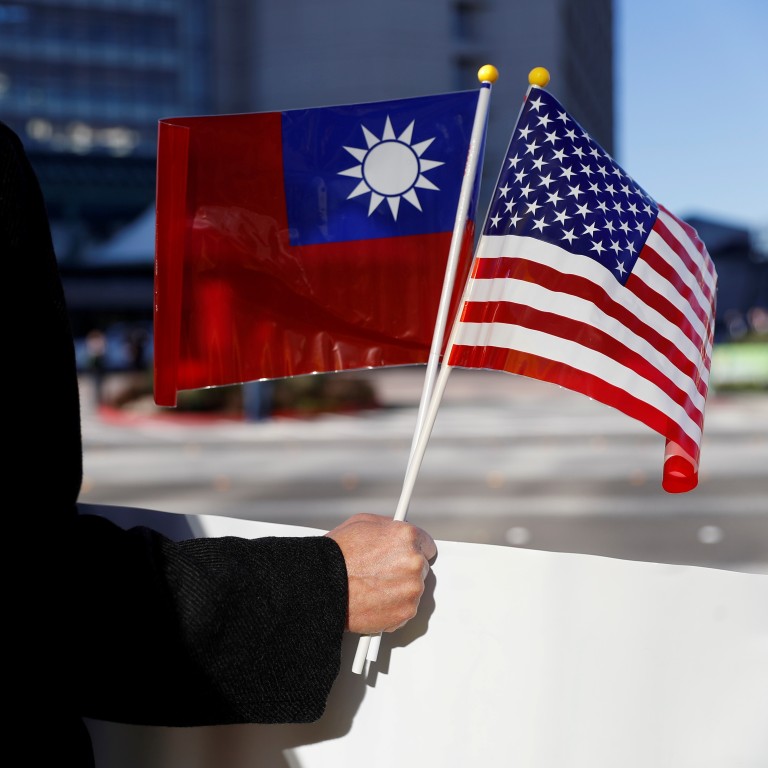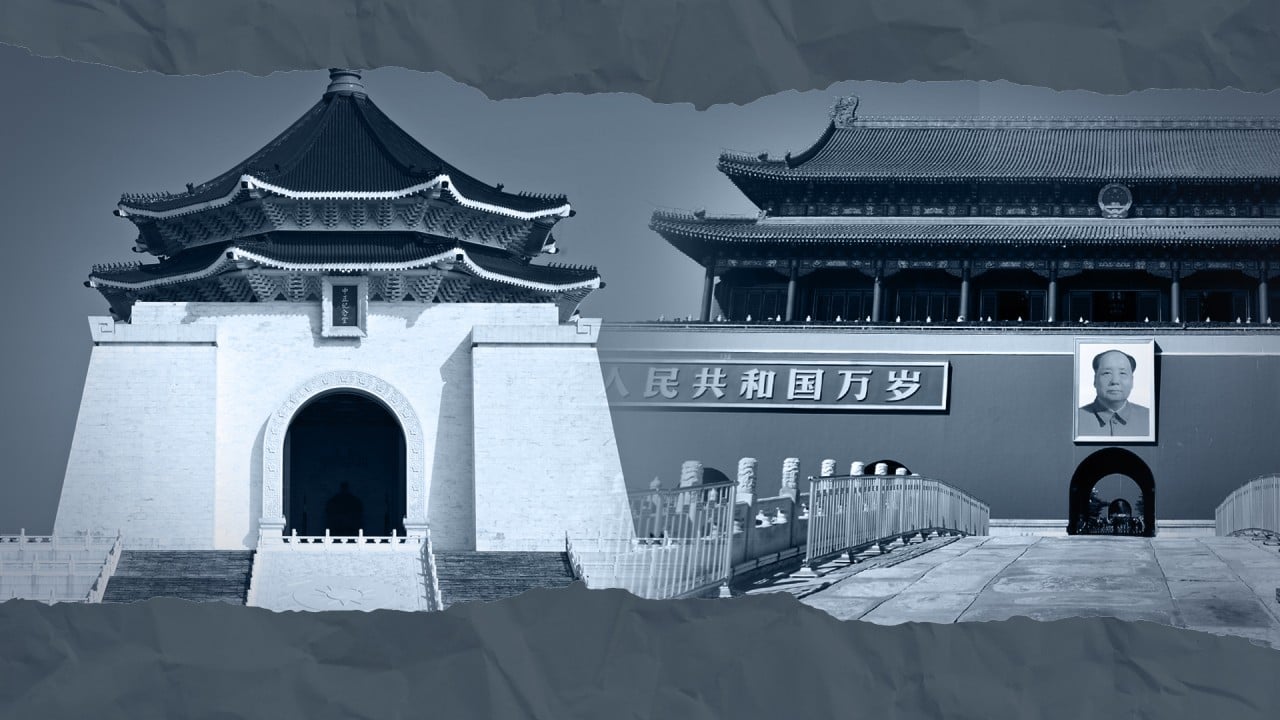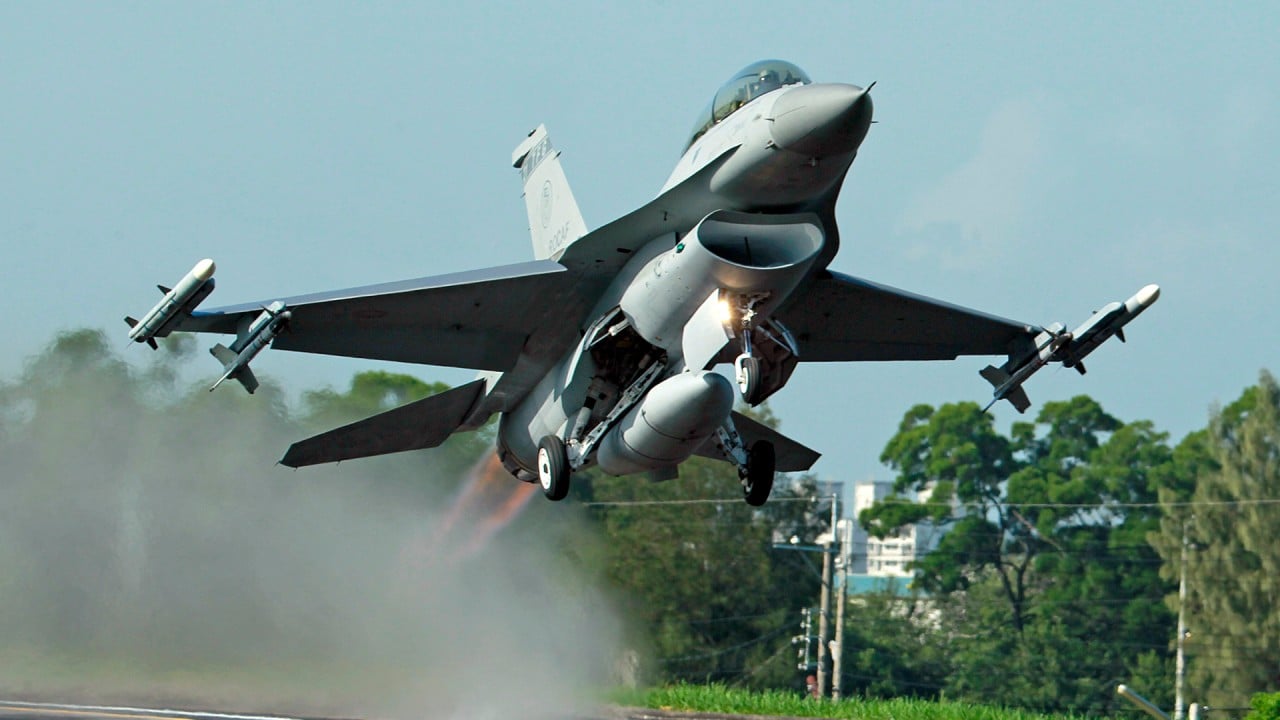
US admiral’s undercover visit to Taiwan certain to annoy China
- Taiwanese foreign ministry confirms arrival of US official but declines to provide details
- Donald Trump’s administration has ramped up support for Taiwan, including with new arms sales, alarming Beijing
Analysts said the visit of Rear Admiral Michael Studeman, director of intelligence at the command, was “unusual and unprecedented” and would further push Beijing to take a hardline approach towards the island.
The Taiwanese foreign ministry remained tight-lipped about the visit, refusing to disclose the name of the visiting official, who was identified by Reuters and several local media outlets. Studeman arrived on Sunday at around 7pm aboard a US Gulfstream C-37 which provides flights to senior US government officials and congressmen.
“There are frequent interactions between Taiwan and the United States, and we welcome the visit by the US official, but as this itinerary has not been made public, the foreign ministry has no further explanation or comment on his visit based on mutual trust between the two sides,” Joanne Ou, spokeswoman for the foreign ministry, said on Monday.
Taiwan’s defence ministry and the de facto US embassy in Taipei both declined to comment.

10:22
Why has the relationship between the Chinese mainland and Taiwan taken a turn for the worse?
Taiwan’s United Daily News published pictures of an unmarked private jet, which it identified as a US military aircraft, arriving at Taipei’s downtown Songshan airport, and what appeared to be officials waiting at the VIP terminal.
Data on the flight-tracking website Plane Finder showed a private flight arriving from Hawaii – home to the headquarters of the Indo-Pacific Command – into Songshan airport late on Sunday afternoon, shortly before the United Daily News published the pictures on its website.
Beijing regards Taiwan as its territory, to be returned to its control by force if necessary. It has ramped up pressure against the self-ruled island by staging war games close to the island and sending military planes into Taiwan’s air defence identification zone – with more than 1,760 sorties so far this year.
The United States, under President Donald Trump, has increasingly drummed up support for Taiwan as part of its strategy to counter Beijing, with the two sides in dispute on almost all fronts – from trade to technology and from military to human rights issues.
Observers said the visit by an Indo-Pacific Command intelligence officer was considered highly sensitive amid growing cross-strait tensions and sour relations between Beijing and Washington.
Drew Thompson, a former US defence department official with responsibility for managing US relations with mainland China and Taiwan, said the leak of Studeman’s visit was “unusual and unprecedented”, as well as a “sure-fire way to make the Biden administration think twice about future visits”.
“This makes the future administration’s decisions more difficult, as they will perceive greater risks and downsides to future high-level visits, offsetting perceived benefits,” he said.
“But I also don’t think anyone is playing the ‘Taiwan card’ … High-level visits are a military-diplomacy tool, just like any other high-level visit.”
Douglas Paal, a former head of the US representative office in Taiwan who is now with the Carnegie Endowment for International Peace, said: “If it is Indopacom J2 Studeman, I know of no precedent for such a visit.”
Beijing-based military expert Zhou Chenming said Studeman’s visit to Taiwan would send a wrong message to Taipei that the PLA would be afraid of “the military intervention” made by the United States.
“The voice to attack Taiwan is louder and louder as more [Taiwan affairs] think tanks on the mainland are tending hawkish,” Zhou said, adding that such high-level visits might push the People’s Liberation Army to act at any time to take Taiwan. “However, Beijing doesn’t want the Sino-US relationship to be instigated by several Taiwan-independence enthusiasts.”

02:28
Washington’s US$1.8 billion arms sale to Taiwan is first weapons deal of its kind in over 40 years
Wang Kung-yi, head of the Taiwan International Strategic Study Society, said intelligence exchanges between the US and Taiwan were usually kept secret, which explained why no government departments wanted to confirm Studeman’s visit.
“Unlike visits by US undersecretary of state Keith Krach and health secretary Alex Azar, visits by intelligence officials are considered highly sensitive and both Taiwan and the US have an understanding not to disclose this kind of visit to avoid strongly provoking Beijing,” Wang said.
“If confirmed, Studeman’s visit should be related to making necessary arrangements for US intelligence, security, and strategic deployments in the Indo-Pacific region ahead of the transition of the US government,” he said.
But Randall Schriver, a former assistant secretary of defence for Asia during the Trump administration, said Trump’s Pentagon had been quietly sending one-star flag officers to Taiwan on a routine basis. He noted that the US and Taiwan had close intelligence exchanges on the military threat from the Chinese mainland.
Additional reporting by Reuters


